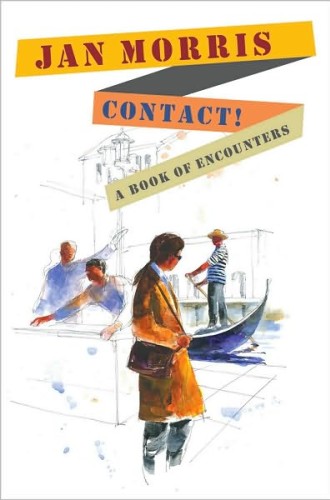A review of Contact!
Wouldn't it be great if one of the world's best travel writers, after 60 years and fortysome books, went back through her work and notes and plucked out hundreds of haunting, revelatory, shimmering moments— brief encounters that "have been sparks of my work," she might say, "if often only in glimpses—a sighting through a window, a gentle snatch of sound, the touch of a hand . . . fleeting contacts [that] have fuelled my travels down the years, generated my motors, excited my laughter and summoned my sympathies."
Such a collection, you would think, might be astonishing in its range and prove, again and again, that the finest writing has to do with sharpness of eye and ear and enormity of heart. Even the tiniest stories, the briefest meetings, are crammed with meaning and emotion if seen from the right angle, yes? It would be a slight book, of course, one without a formal narrative, but one you could dip into anywhere with pleasure—a stack of moments that would tease your imagination, tickle your fancy to read more about, say, Oman or the Cape of Good Hope, and inevitably send you back into her work to ingest her startling sensibility in bigger doses. A master craftswoman's golden notebook, we might call it.
And lo, it is done, by the extraordinary Welsh writer Jan Morris, who here compiles glancing but substantive moments from all over the world over the last 60 years of her stunning travels: a steaming room of 40 Cairo tailors weaving their annual carpet for a shrine in Mecca; a line of people at dawn in Beijing singing and declaiming verse to a wall; a Beirut cabdriver channeling Dizzy Gillespie; a Basque fishmonger with the bearing of a bishop; a Madras police officer singing into her tape recorder; an East German sentry at the Berlin Wall, seen through a gap to be sound asleep in his chair; Adolf Eichmann fidgeting at his trial in Jerusalem like "some elderly pinched housewife in a flowered pinafore, shifting her false teeth, pining for a nice cup of tea"; Harry Truman spinning the globe in his study in Independence, Missouri, "in a manner I can only describe as proprietorial, reshaping my world, abolishing my empire."





